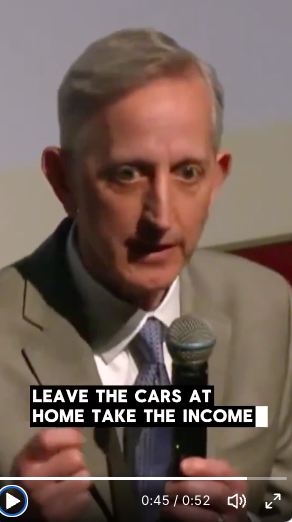What City Observatory did this week
1. Why diversification is a simplistic, often flawed economic strategy. When it comes to personal investment everyone understands (or certainly should understand) the concept of portfolio diversification–by having a wide variety of different investments, one lowers the risk of loss. That same principle is widely applied in economic development, and cities are looking for ways to “diversify” their economies by developing or attracting new industries that aren’t related to current specializations. While intuitively appealing, the analogy between a community economic base and a stock portfolio is a badly flawed one. Cities can’t buy and sell different components of their economy as one would stocks or bonds, and critically, a local community’s location, talent base, infrastructure and related industries are all likely to influence whether an industry flourishes or fails locally. It turns out that seeking diversification for its own sake is poor guide to local economic strategy.
2. Lack of proximity to jobs is not the cause of urban poverty. One of the most durable assumptions underpinning urban economic development efforts is the notion that the lack of nearby jobs is a major contributor to poverty. The “spatial mismatch” theory of poverty holds that the the suburbanization of employment has, on average, moved jobs further away from poor neighborhoods. A new study looking at housing voucher recipients challenges the validity of this assumption. Using careful calculations of the accessibility of housing locations to jobs (and adjusting for the labor force competition) the study finds no relationship between access to jobs and earnings for voucher recipients. It also finds that workers who move and who record increases in income tend to have lower rates of job accessibility.
Must read
1. The compressed Donald Shoup. Retired UCLA economist Don Shoup is famous for producing a 900-plus page treatise on The High Cost of Free Parking. For those who haven’t yet waded through the entire tome, now there’s a more digestible version, prepared by Shoup himself. This short essay, “Why parking reform will save the city” published by CityLab is a conversational and largely non-technical summary that lays out all of the key arguments for pricing parking and ending minimum parking requirements.
Cities will look and work much better when prices—not planners and politicians—govern decisions about the number of parking spaces. Like the automobile itself, parking is a good servant but a bad master.
2. Roads, fiduciary responsibility and public finance. While we’re on the subject of free parking, another insightful perspective comes from Todd Litman. While we think of roads and curbside parking as free, they really aren’t, and a big share of the cost gets shouldered by state and local governments, who regularly invest in extremely expensive assets, and then do a terrible job of getting those who use them and benefit from them to pay either the costs of their construction or ongoing maintenance. In Litman’s view, the failure to properly manage the financial aspects of expensive investments like roadways is a dereliction of a governing body’s fundamental “fiduciary” responsibility to the public. This is particularly a problem for central cities–as Litman argues central cities build and operate roads that are disproportionately used by suburban residents, while city residents (who typically own fewer cars per capita) are far less likely to use suburban roads.
Cities significantly underprice their roads and parking facilities, forcing local taxpayers to subsidize out-of-town motorists. Municipal officials have an obligation to better manage these valuable public resources.


